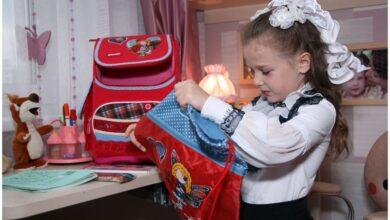Children of war and their emotional wounds: why they bite their nails

War touches everyone mercilessly, but it leaves the deepest mark in the hearts of children. They are the most vulnerable category, and childhood experiences often turn into invisible but very real emotional wounds. Today, Ukrainian children are growing up in an environment where the sound of explosions and sirens replaces the usual sounds of children’s games, and fear and anxiety become constant companions of their childhood. In such conditions, even seemingly small habits can be signals of deep stress. One of these habits is nail biting, an invisible but loud reaction of the child’s psyche to challenges that it is unable to express in words.
Nail biting as a signal of emotional instability
According to paediatric neurologists, this can be more than just a habit: it is a mirror of deep emotional problems that need attention. The nails that a child bites until it hurts are just the tip of the iceberg. This seemingly unnoticeable act often indicates that the child is experiencing emotions that he or she cannot cope with. Parents sometimes do not immediately pay attention to this signal, considering it just a bad habit.
However, nail biting can indicate serious internal experiences, such as
- Sleep disturbances: fears and nightmares that keep you awake at night;
- Increased anxiety: the child may be afraid of everything new, feel afraid of school or interactions with peers;
- Emotional fluctuations: rapid mood changes may be a sign that the child is unable to control his or her emotions.
Such behaviour becomes a kind of ‘cry for help’ – the child does not speak openly about his or her feelings, but the body finds a way to relieve internal tension.
What influences the formation of this habit
The emotional experiences of children always depend on the environment. The child reads all the changes in the behaviour of parents, teachers and friends. During the war, when the usual rhythm of life is destroyed, children try to adapt to the new reality. The main factors that influence the nail-biting habit include
- War: fears and experiences of losing relatives, shelling, stress during moves to new places of residence;
- Family conflicts: emotional tension in the family, quarrels and conflicts leave their mark on the child. They cannot express their emotions in words, so they find a way out through bad habits.
- School stress: a child who feels insecure or afraid of school may express his or her anxiety by biting his or her nails.
- Social pressure: relationships with peers can be a source of additional stress. When a child does not feel comfortable in the company of others, he or she may resort to such habits to calm down.
How to help your child cope with this habit
Nail biting is only a superficial symptom of deeper problems that need attention. To help your child, you need to take a comprehensive approach to solving this problem.
Here are some steps that can help your child reduce emotional stress:
- Observe the behaviour: parents should carefully observe when their child starts biting their nails. This will help identify triggers – specific events or situations that cause stress.
- Open conversations: It is important that the child feels supported and can talk openly about his or her fears and anxieties. Openness and attention from parents will help the child understand that their emotions are normal and can be dealt with.
- Creative substitutes for the habit: offer your child alternative activities that will help them to distract themselves. These can be creative activities, such as drawing or modelling, that will help redirect energy in a constructive way.
- Consultation with a specialist: if nail biting continues and the child’s anxiety does not decrease, it is worth contacting a child psychologist or neurologist. Professional help will help you better understand the causes of the problem and find a solution.
Children of war: the path to emotional healing
War leaves deep wounds in the souls of children that are not always visible from the outside. Nail biting is just one of the ways a child tries to cope with the burden of their emotions. Creating a safe and supportive environment for the child, where their emotions are heard and supported, is an important step towards emotional healing. Parents should be the first ones to help their child regain confidence and learn to cope with anxiety in healthy ways.
It is important to remember that no one should go through this journey alone. If the situation requires it, you should seek professional help. Together, we can help children of war find their way to emotional stability and regain the childhood they have the right to experience.





